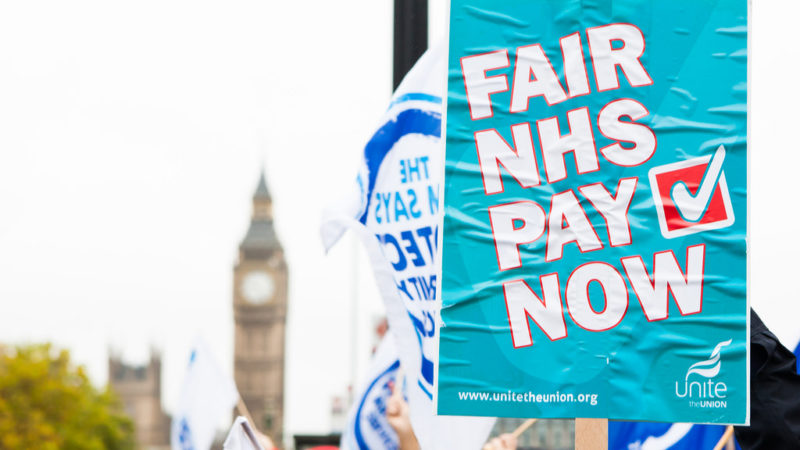As the long-awaited NHS backlog plan is delayed, a series of recent studies reveal the extent of the stress and exhaustion the National Health Service workforce is enduring.

One body of research, published in the Journal of Paramedic Practice, found that – faced with record numbers of 999 calls – more than half of NHS paramedics are suffering from burnout.
Frontline crew members also pin their stress and exhaustion on delays in reaching seriously ill patients, a lack of meal breaks, and their shifts not ending when they should.
‘Depersonalisation’ among ambulance crews
Such is the scale of stress within the profession that nine out of ten ambulance staff are displaying symptoms of cynicism, detachment and reduced levels of empathy when dealing with patients requiring urgent medical attention – a condition known as ‘depersonalisation.’
According to the authors of the survey, the high level of burnout is leading to some paramedics quitting the profession, thereby exacerbating the shortage of ambulance staff.
The current plight of ambulance crew follows similar findings of a recent poll of around 1,000 members of the trade union GMB. It found that in the last six months, more than 70% of health workers have considered leaving the NHS.
This represents a sharp jump from 2020, when 61% of NHS staff said they had thought about quitting.
Stress and low pay are the biggest concerns
The survey found stress to be the primary factor behind people deliberating working elsewhere, with 55% of workers citing stress as their biggest concern. Over half of the recipients cited low pay as the main reason they were considering leaving. 15% said bullying and 8% said violence and abuse.
Commenting on the survey, Rachel Harrison, national officer at GMB said:
“Before the pandemic the NHS was on its knees – after two years of Covid it is close to collapse.
“We have a staffing black hole of almost 100,000 – and stress and poverty pay are set to drive thousands more out of the door.
“Health workers have lost thousands of pounds from their pay packets in real terms during a decade of conservative mismanagement.
“The NHS in England is no longer a Living Wage employer.
“Instead of empty clapping gestures and promises of pretend hospitals, the government needs to give staff proper pay prise.”
NHS Pay Body Review
The survey came as a total of 14 unions call on the government to award nurses and other health professionals with a pay rise sufficiently significant to attract new recruits and stop staff from leaving.
Without a significant pay rise, the pressure the NHS is currently under could become permanent, unions warned in evidence to the NHS Pay Review Body.
The unions, which collectively represent some 1.2 million health staff in England, say pressures include staff increasingly leaving, meaning departments are understaffed, lengthy patient waiting times, and gaps in workforces negatively impacting quality of care.
When advising on the NHS Pay Review Body on the 2022 – 23 pay rise, the 14 unions presented evidence that shows without a “decent wage boost”, many more staff facing burn-out could leave.
The unions are demanding an “emergency retention package”, for additional shifts to be rewarded fairly, for limits to be placed on working excessive hours, and for the lowest paid NHS workers to receive a pay increase that puts them above living wage rates.
Noting how “government dithering” last year meant health workers had to wait for a “measly pay rise,” Sara Gorton, head of health at Unison and chair of the joint health unions, said: “An above-inflation increase alone isn’t a magic solution to the NHS’ many problems. But a decent wage boost could be just the trick to persuade many burnt-out staff to stay.”
Credibility of NHS Pay Review Body under fire
Following an additional survey of Unite’s NHS members, the credibility of the NHS Pay Review Body (PRB) for England has been questioned.
The survey found that vast majority of NHS members do not believe the PRB is truly independent when it comes to recommending the annual pay award. 88% of the 2,950 members who replied to the survey this month said they felt the PRB was not recommending fair pay increases for staff and was failing to value their individual contributions.
The NHS Pay Review Body is due to report its recommendations in May.
Gabrielle Pickard-Whitehead is a contributing editor to Left Foot Forward
Left Foot Forward doesn't have the backing of big business or billionaires. We rely on the kind and generous support of ordinary people like you.
You can support hard-hitting journalism that holds the right to account, provides a forum for debate among progressives, and covers the stories the rest of the media ignore. Donate today.



